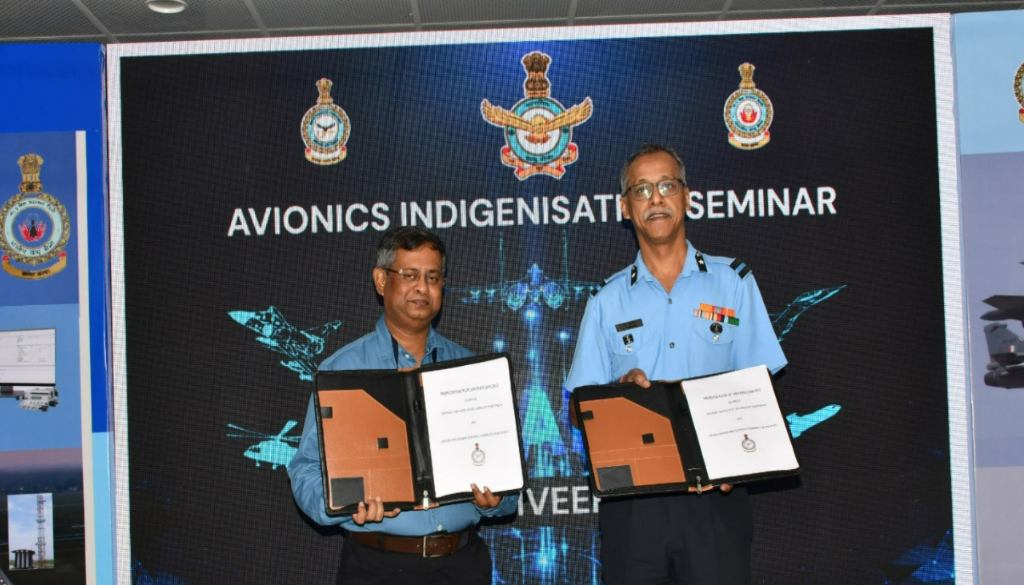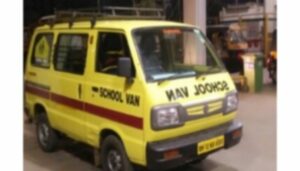Pune: IAF Pushes for Self-Reliance in Avionics with Rs 6,000 Crore Projects

Viman Nagar, 18th October 2024: The Headquarters Maintenance Command (HQ MC) of the Indian Air Force (IAF) organized a two-day seminar, AVISEM-24, on October 17-18, 2024, at the Base Repair Depot in Pune. The event, centered on the theme of “Avionics Standards and Certification,” brought together a range of experts and key stakeholders, including senior officials from Air Headquarters, renowned scientists from organizations like the Centre for Military Aviation Certification (CEMILAC), the Directorate General of Aeronautical Quality Assurance (DGAQA), the National Aerospace Laboratory (NAL), and the Aeronautical Development Agency (ADA). Private sector representatives from MCCIA, PHD CCI, and FICCI were also in attendance.
Air Marshal Vijay Kumar Garg, Air Officer Commanding-in-Chief of Maintenance Command, presided over the seminar. On the first day, discussions focused on the Indian Air Force’s need to develop indigenous solutions for the repair, design, and development of various avionics systems. Additionally, an exhibition showcased the capabilities of private industry players in this field. On the second day, the seminar featured brainstorming sessions on avionics certification and quality assurance, essential for advancing indigenous aviation technologies.
In his keynote address, Air Marshal Garg highlighted the urgent need for India to achieve self-reliance in maintaining and sustaining the wide range of equipment operated by the IAF. Citing the backdrop of global conflicts, he stressed the importance of in-house design, development, and certification of avionics equipment to secure long-term sustainability. “Given the current international climate, we cannot depend on external sources. The only way forward is to develop our capabilities in-house,” he said.
He also reaffirmed the IAF’s commitment to supporting indigenous efforts in avionics system repair, refurbishment, and replacement. According to the Air Marshal, ongoing projects within the Maintenance Command—amounting to approximately ₹6,000 crore—aim to reduce dependence on foreign sources and enhance domestic production. These initiatives, he noted, will not only strengthen the IAF’s self-reliance but also benefit private industry players involved in the defense sector.
During the event, Air Marshal Garg underscored the importance of collaboration between the IAF, industry partners, and certification and quality assurance agencies. “This seminar is a platform where users, industry partners, and certification bodies can come together to share their requirements and challenges,” he remarked. He emphasized that independent certification and quality assurance remain crucial in the field of aviation, assuring participants that the event would help bridge gaps between industry capabilities and IAF needs.
He further urged attendees to use the seminar as an opportunity to better understand the certification process and the challenges it poses. He also praised recent initiatives by CEMILAC to streamline the certification and quality assurance process, making it more accessible to industry partners.
In his closing remarks, Air Marshal Garg reiterated the IAF’s dedication to supporting its industry partners by sharing knowledge, resources, and infrastructure for testing and evaluating new avionics systems. He highlighted the partnership between the IAF and NAL, which has been brought on board as a consultant to assist in the indigenous development of avionics technologies.
Over 100 industry participants attended the two-day event, displaying their technological capabilities and sharing their experiences. Representatives from NAL and ADA provided insights into their work, while CEMILAC and DGAQA officials outlined recent measures taken to simplify the certification process. A Memorandum of Understanding (MoU) was signed between HQ MC and MCCIA to explore further areas of collaboration on avionics projects.
This seminar marked an important step in strengthening ties between the IAF and private industry, paving the way for greater cooperation in the development and certification of indigenous aviation systems.








